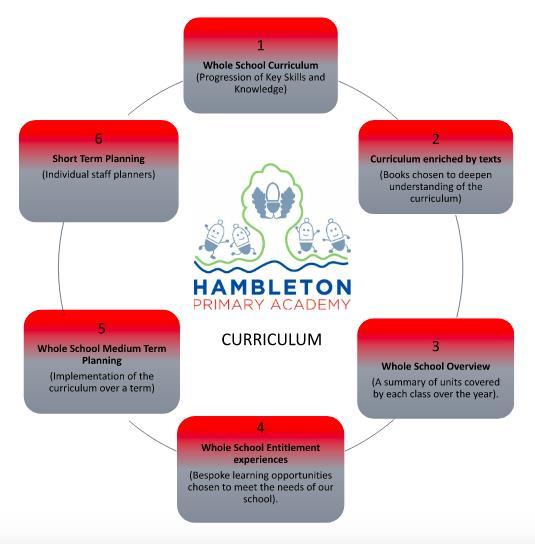
Language_Angels _ Progression_Map_2019.pdf
Subject Implementation
Hambleton Primary Academy seeks to provide an all-round education for children in a bright, stimulating and fun atmosphere. Our Modern Foreign Languages curriculum is underpinned by planning and resources from the Language Angels scheme of work. By learning French our pupils recognise that people of different nationalities and cultures communicate in languages others than English, both across the world and within their own community. It
Progression of knowledge and skillsallows children to build self-confidence as well as developing a passion for communication, linked to their oracy in English. Through the four key language skills; listening, speaking, reading and writing children will develop the knowledge and the foundations they will require to transition to Key Stage 3.
Fundamental Great British Values
At Hambleton, we understand our responsibility in preparing children for their next stage of education and for the opportunities, responsibilities and experiences of later life, laying the foundations so that they can take their place successfully in modern British society. This is evidenced through our inclusive teaching and learning, our inclusive environment and through the many opportunities provided for our children to understand democracy, law, liberty, mutual respect and tolerance. French lessons are an excellent opportunity to promote the British value of mutual respect. In looking at another culture, we compare from our own position but through a respectful mindset. The children are given multiple chances to explore what connects our culture to others and to draw similarities to people from different cultural backgrounds. Events such as the European Day of Languages celebrate different cultures from around the world in a way which engaged the children and presented world cultures as something to get excited about.
Planning
French is taught from Year 3 to Year 6 once per week for one hour by our expert French teacher, Claire Parkinson. Our curriculum is thoughtfully planned to engage and excite all of our learners – ensuring children are taught the specific linguistic skills as stipulated in The National Curriculum 2014 (phonics, vocabulary and grammar). Across Key Stage 2 Claire uses the Language Angels Scheme of Work for planning and providing an interactive computer resource to cover the necessary skills. Topics have been selected based on the suggestions by Language Angels to ensure coverage and build up of grammatical, audial and linguistic skills. These have then been adapted to provide cross curricular links within subjects and challenge where necessary. The build up of these skills has been ensured through the creation of a progression document for the entire school. The first half of each lesson focuses on speaking and listening before completing an independent activity to focus on reading and writing skills.
Collecting Evidence
Evidence is collected throughout the year and in a variety of different ways. These include, planning in Staff Planners, subject monitoring (book scrutinies, walk throughs and pupil voice), staff discussions (meeting notes) and data captures. Last Spring, French books were introduced to organise children’s work so it was easy for children to locate and recap on previous learning. Examples of work from lessons are included on learning journeys displayed in classrooms. We also use the Progress Tracker tool on Language Angels to collect data on the progress of each topic. In addition to this, Hambleton’s Facebook Page is used to collect and record examples of language and cultural learning within lessons.
Covid 19 Impact
During the first lockdown from March 2020 and the subsequent lockdowns in January 2021 all children received comprehensive support for home learning by all members of staff across the curriculum. French was included as part of KS2’s topic work set on Google Classroom throughout the period. For example, during the first lockdown teachers provided links to BBC Bitesize to support learning. In terms of our curriculum coverage, this meant that the same units were not being covered although the children were still being exposed to the language. During our second lockdown children were given access to the home learning units via our new scheme, Language Angels. When children returned to school, staff did try to cover missed units which were not covered during lockdown but due to time constraints, these were not all taught. A target for this year is to work with and support staff in ensuring full curriculum coverage in French. This had been done through the implementation of the Language Angels scheme of work which has provided the structure, continuity and consistency across KS2 that was required. We have also employed a fluent French speaker with experience of teaching Primary French to assist the subject lead and class teachers. There is also the expectation that class teachers are providing recap for work from previous learning to ensure sticky learning and a continuity with the curriculum. In addition, enrichment activities such as afterschool clubs, visitors to school and linking opportunities with other schools were unable to take place from Spring 2020. As restrictions ease, these opportunities will begin to be available to children again.
Able, Gifted and Talented Pupils
Key skills and knowledge needed for each year group are used to assess pupils are assessed against and added to our subject data collections. Teachers can clearly see children working at greater depth for French and can effectively plan opportunities for these children. Challenge time at the end of each lesson allows pupils to build on the skills and knowledge that they have gained.
SEND and PP Pupils
At our school we teach French to all children, whatever their ability. It is part of the school curriculum policy to provide a broad and balanced education to all children. We provide learning opportunities that are matched to the needs of children with learning difficulties. Planning of French lessons considers the targets set for individual children in their Personal Plans (PPs). All children begin learning French together in Year 3 which means all children including SEND experience a new language in school for the first time together. Through the Language Angels scheme of Work French is taught visually, using images to support learning of new vocabulary and through a variety of games, songs and rhymes. We teach French phonics to help all children identify and recognise new vocabulary to support spelling and pronunciation. In all year groups, in all lessons French alphabet and phonics word mats are out on tables to prompt and support. Additional support is provided through Knowledge Organisers and Vocabulary Lists in exercise books, making it easy for all children to locate information to support themselves within lessons. We also have experienced TA’s who are trained to support all children and are trained to take out intervention groups which may include SEND children. Vocabulary is constantly modelled correctly by a native speaker via the Language Angels PowerPoints.
Enrichment Opportunities
2023-2024
This Year we will be hosting International Francophonie day across the school. Francophonie Day is observed by the International Organization of La Francophonie in March every year to celebrate the French language and Francophone culture. It is celebrated in commemoration of the 1970 Niamey Convention, where French-speaking states signed to align their mutual interest. On this day, the 220 million francophones, across five different continents, celebrate their language and celebrate the diversity and love for the French language. Our day will include quizzes, French culture, speaking and listening opportunities as well as enriching the children’s love and knowledge of French.
2022-2023
We strongly believe that MFL is a subject which can be greatly enhanced in many different ways. Our latest prolific MFL enrichment event was European Day of Languages, celebrated across the whole school. Each class themed the day around a different European country and spent the day learning about the country, its culture and language. The day was a fantastic opportunity for children to learn about different countries and cultures, as well as inspiring interest in new languages. Through video recording the children were able to listen to native/fluent speakers in a variety of languages. Posters with QR codes were also accessible around school to all children to find out more information about the many languages in Europe. Reception went on a journey through France, ending up in Paris, greeted with French music and food and then created charcoal sketches of the Eiffel tower. Year 1 received a video recording from a little boy in Poland and recorded themselves saying ‘hello’ in Polish back. Year 4 participated in an online live lesson learning to speak Italian and then designed their own pizza recipe in Italian and then got to make and eat them. Year 5 learnt all about Germany and had the opportunity to taste authentic German food. Year 6 completed a quiz to discover all the countries where Spanish is spoken and identified the flags of these countries.
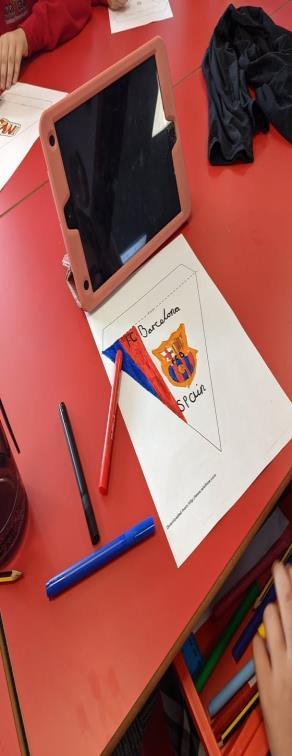
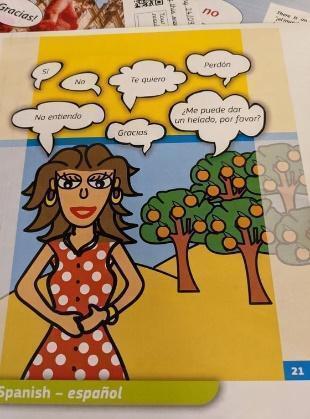
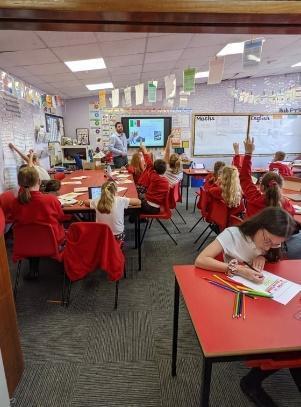
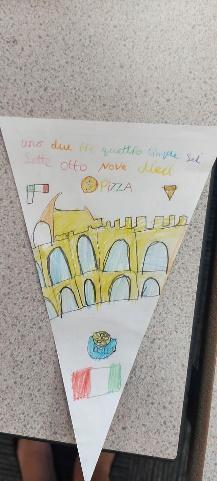

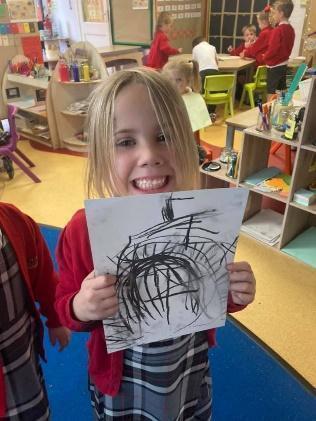
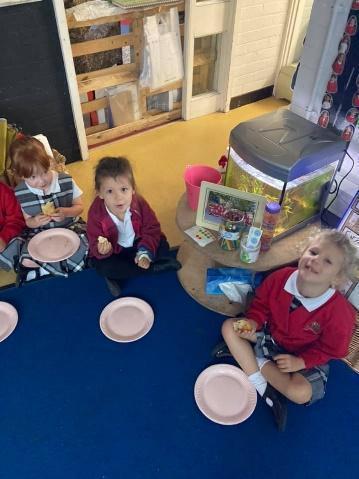
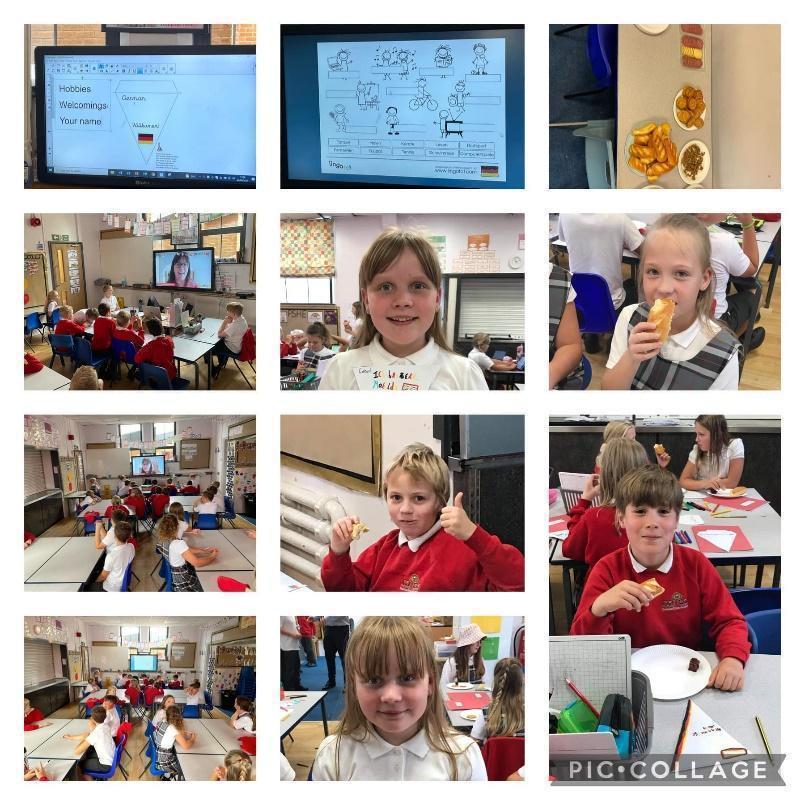

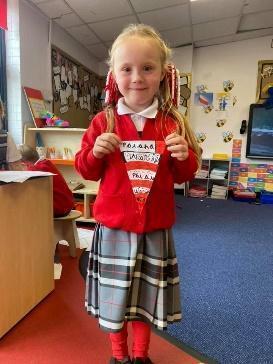
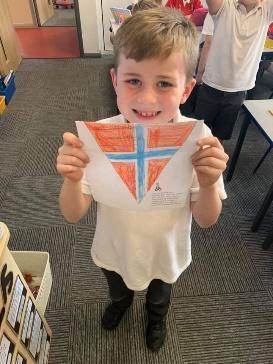 Targets
Targets
1. All of KS2 (Y3,4,5&6) to have weekly 1 hour French lessons following Language Angels.
Claire Parkinson to teach weekly, one hour lessons alongside the class teacher for CPD.
This will:
Ensure all children are receiving high quality, creative teaching.
Allow for children to progress through a sequence of lessons and make good progress.
Claire to be timetabled in by MG.
Raise the profile of French in school and make children enjoy it as a subject.
Class TA to swap and work with Jo in Year 3 when French is being taught in their class.
Claire to be given time to plan or prepare when needed.
Resources to be prepared in advance. Support from myself for Claire with everything.
International Day of the Francophone in March ’23 to give KS2 children the opportunity to share their French knowledge.
2. To upload assessment data onto Language Angles.
Beth to update classes on Language Angels.
This will:
Allow for data to be accessed by the subject lead and assess areas for development within the curriculum.
Ensure teachers are using this data to inform their data captures throughout the year.
Claire and the class teachers to carry out the end of topic assessments and for data to be updated by the class teacher on Language Angels.
Ensure teaching of units are being taught, following Language Angles scheme of work.
Areas to work on will be seen and plans adapted accordingly by Claire.
3. To use dictionary skills, across Year 5 and 6 particularly.
Subject leader to check data area on Language Area regularly.
This will:
Boost children’s confidence in French vocabulary and their ability to use a wider range of words in their writing.
Year 5 and 6 to have French dictionaries available to use in lessons. Lessons to be planned and taught with the focus on using dictionaries.
Impact of Staff Training
MFL is mainly taught by our expert French teacher, Claire Parkinson who is fluent in French. All teaching staff receive on the spot training from Claire as they stay in class and observe her teaching weekly in their own class.
All teachers, when necessary, receive extra CPD and through subject monitoring it is apparent how the introduction of Claire and the Language Angels scheme of work has provided the staff with the support and knowledge required to teach, plan and observe French with more confidence.
Subject Leader CPD
Subject Leader provided training for class teachers.
Pre-record CPD session via Language Angels (Pillars of Progression).
• An understanding of the pillars of progression when learning a language and how we can use this to support primary language learning (for example, children need to understand how to pronounce a simple noun, they need to know some information about the noun and how it combines with other words in a sentence).
13th October - How to successfully establish & embed foreign languages in your primary school
• To give the subject leader the knowledge required to lead and direct the planning and teaching of French. To be given facts of what works and doesn’t work to support the action plan and curriculum at school.
9th February - Supporting effective SEND teaching & learning in primary foreign languages
• Foreign language lessons lend themselves particularly well to SEND-friendly learning strategies such as the use of repetition and a multi-sensory approach with songs and visuals which boost the chance of success of the SEN learner. As MFL focuses on the four key skills of listening, speaking, reading and writing, it is inclusive in nature - learners who normally find reading and writing tasks difficult in other lessons can often find themselves excelling in the speaking and listening activities, thus fostering enjoyment through success. Often SEND children thrive in MFL as every child in the class is starting the subject from point ‘0’.
• Use and implementation of resources (Language Angels) providing consistency across KS2.
• Providing knowledge organisers and vocab lists for each unit to provide support for all children during lessons.
• Making staff aware of the end of unit assessments and how to record these on the Progress Tracker tool on Language Angels.
• Claire provides feedback from her own lessons along with the detailed planning to class teachers.
Assessment / Measuring Impact
Ongoing assessment and review is fundamental to everyday teaching at Hambleton Academy. Teachers are constantly making judgements with regards to attainment in lessons to inform planning and to ensure differentiation, especially in a subject in which the outcome is mainly spoken. Intervention within the lesson is crucial in ensuring children are prepared to learn; misconceptions quickly identified and rectified. At the end of each French topic the pupils are assessed against the key skills taught. Results are then inserted into the Language Angels Progress Tracker to monitor progress across Key Stage 2. Attainment is reported half termly via data captures stating whether children are working towards the expected standard, working at age related expectations or working at greater depth. From this data, we can adapt teaching focuses to ensure key skills are being addressed and promoted adequately. Parents are informed of their child’s attainment and effort on a termly basis through Parents’ Evenings and end of Year Reports.
